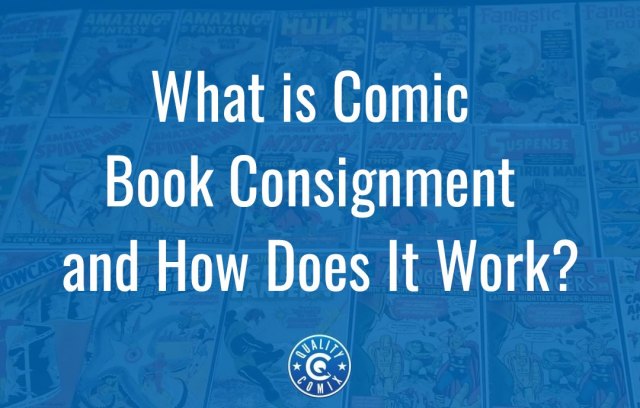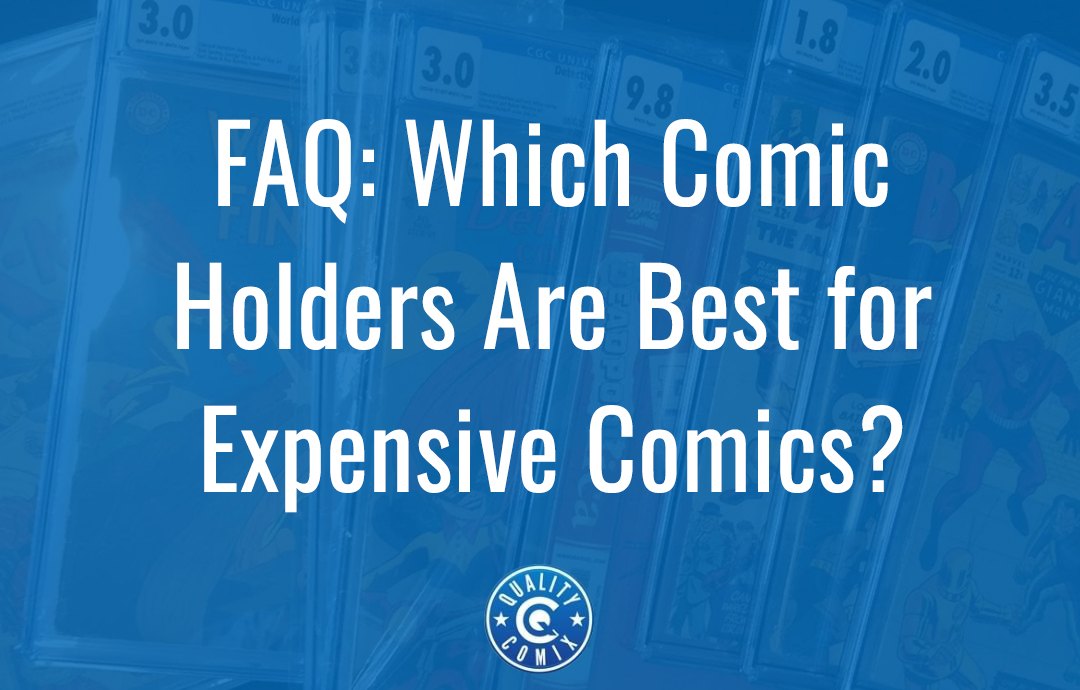
Comics have been growing as an investment and hobby for decades now, which means there is a huge array of different products meant to help collectors protect, store, display, and enjoy their comics. Some of these products are the gold standard in the industry; others are little more than plastic trash that can actually damage your high-end books. Which options are the best, what should you look for, and what should you avoid? Let's run down some of the most frequently asked questions.
Table of Contents
What Are the Biggest Concerns with Storing Valuable Comics?
Comics, particularly older comics from the Golden and Silver ages, can be very valuable. The older a comic is, generally, the more valuable it will be. However, the older something is – especially something considered disposable media, printed on paper with ink that can fade in the sun – the more likely it is to end up damaged.
Comics can build up damage from a variety of sources. Paper can degrade and become brittle, chip, crack, tear, and fall apart. Ink can fade, change colors, or grow muddied over time. Pages can wear, staples can rust, and moisture can lead to mold. Some of this can be prevented; other damage can't.
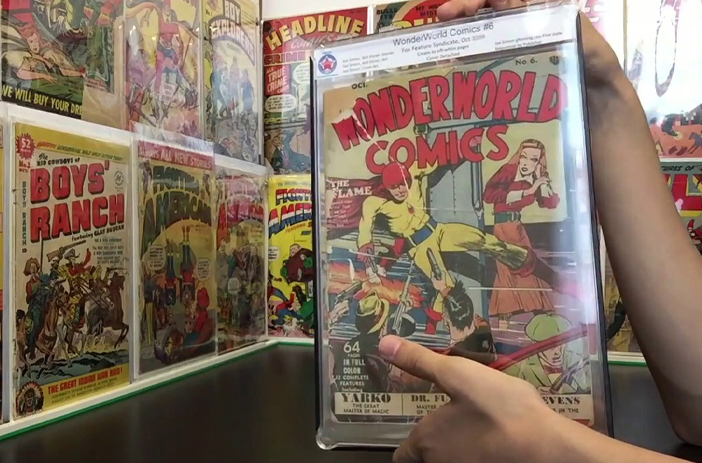
While you might think the best option is to seal your comics in some kind of archival-grade container, the truth is, that doesn't really work. Comics are essentially their own ecosystems, and sealing them up doesn't prevent damage. Paper can naturally release acids that degrade it further, for example. That's why many storage systems you find specify that they're "acid-free," and you're often encouraged to buy backer boards or even inserts that absorb acid.
It's also why slabs – the gold standard of protecting a comic – aren't actually hermetically sealed. They're somewhat permeable, so the comic can breathe. While this is good for the preservation of the comic, it's also bad for protection, as moisture can still get in if the comic isn't stored properly.
What is a Slab?
Serious comic collectors can skip this part; you already know it. If you're just getting into comics, though, you may have heard of slabs, but you're not quite sure what they are. So, let's go through it.
A slab is a hard plastic shell case that seals around a comic, meant to protect it from casual forms of damage like curving and bending, impacts, scratches, and UV light (since the plastic is generally museum-quality with UV resistance.)
95% of the time, a slabbed comic means a graded comic. All of the grading companies put your comics in a slab and mostly seal them up.
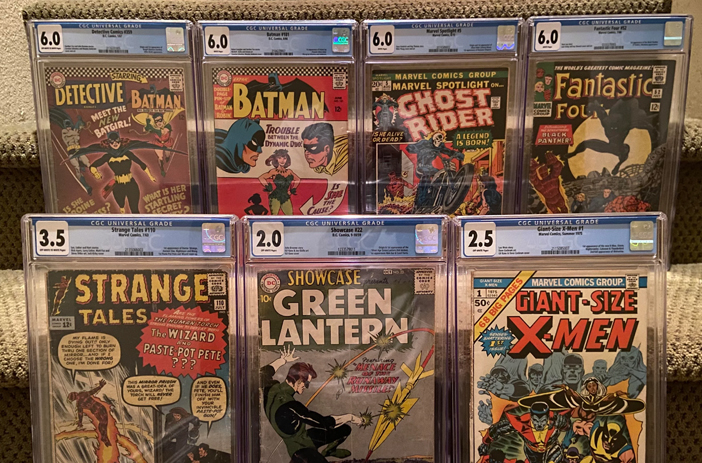
Image source: https://www.reddit.com/r/comicbookcollecting/comments/k3n0lv/really_have_to_find_a_way_to_display_my_slabs/
Slabs serve two purposes. First, they're protective. Second, they're sealed and tamper-evident. Since grading is a form of authentication, and the label indicates the value of a comic, slabs need to be impossible to crack open without showing damage, so if someone tries to swap a comic out, it would be obvious. A comic, its slab, and the label on the slab are all one single package once a comic is graded.
This is not to say a comic can't be removed from a slab. It can! But if you're removing a comic from a slab, you need to be doing it for a good reason. Maybe you're sending it to another grading company. Maybe the slab was damaged, and you don't trust a damaged slab to protect the comic in transit. Or maybe you work for a grading company, and you're part of the slab replacement team.
Slabs are a good way to hold comics, but they are not themselves display stands. In fact, it can sometimes be tricky to display comics in slabs without the right equipment.
Should You Slab Comics Yourself?
Above, I said that 95% of the time, comic slabs come from the grading company. What if you don't want to pay to get your comics graded, though? Can you still slab them up yourself?
The answer is yes. You can buy slab kits and slab up your own comics. They won't have labels, grades, or authentication, but if you don't care about those, that's fine. Grading a comic can increase its value, and slabbing it can be protective. You may also have a line of comics you've graded for display and want to display other comics you don't want to bother with grading, so a DIY slab can make them look at least mostly uniform.
Should you slab comics yourself? That's another question.
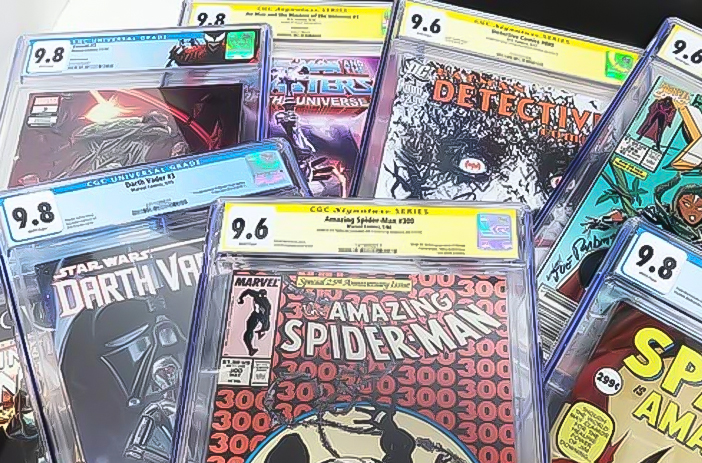
Image source: https://cdn.shopify.com/s/files/1/0524/9849/7688/collections/CGCSLABSCOLLECTION_1200x1200.jpg?v=1611020727
If all you want is some protection, and the comics aren't terribly valuable, then sure, you can slab them yourself. Similarly, if you intend to get them graded eventually but don't have the time or funds to do so now, slabbing them yourself can be a good temporary measure. Otherwise, though, self-slabbing isn't terribly meaningful, and there are other ways to protect your comics that aren't quite as expensive and tedious to do.
What Alternatives to Slabs Are There?
There are a bunch of different ways you can put comics in a kind of holder, for display purposes and for protection. You don't need to get them graded and slabbed; you can put them in their own display cases and store them however you like. What options do you have?
Top Loaders
Fans of trading cards know all about top loaders. These are basically two stiff sheets of plastic, sealed on three sides, with an opening in the top you can slide your card into. Comic top loaders work the same way, they're just larger.
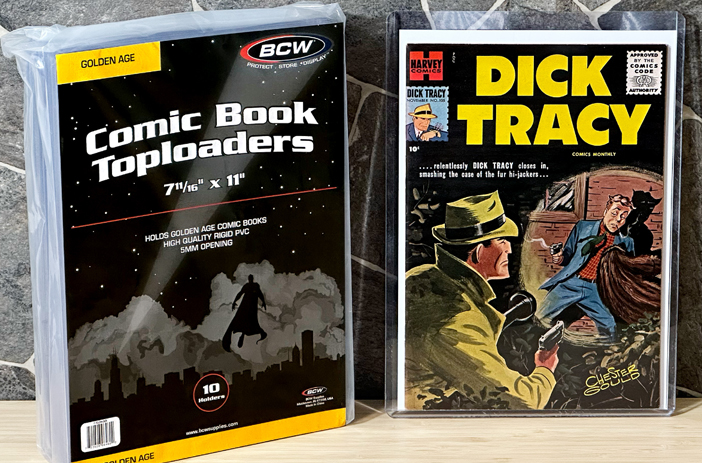
Top loaders are stiffer than bags and serve as bag-and-board together. That said, you generally want to put a comic in a bag with a board before putting it in a top loader. Two reasons for this come up. First, pulling a comic in and out of a top loader can scratch the covers if there are any bits of dirt or grit on the covers or in the loader. Second, if the comic is stored in the top loader for long enough, there's the risk that it might stick to the top loader and be impossible to remove without damaging it. A bag and board help protect it from this.
BCW Snap-Its
BCW is the go-to name in comic collecting, and they have a wide array of different products. Some are generic, and other companies make them too, but some are more specific to BCW, like the Snap-It display holders.
Snap-Its are flexible sleeves for comics, similar to bags, but with a couple of noteworthy differences. First, they have a black backing surface, as a sort of matting for the comic for display purposes. Second, they have holes around the outer edge. These holes serve two purposes.
- They're spaced such that, if you wish, you can file the pages into a 3-ring binder for display purposes.
- Using plastic clips that come with the kit, you can attach pages to each other horizontally and vertically to create a larger display sheet for hanging on a wall.
Are these any good? That's kind of up to you.
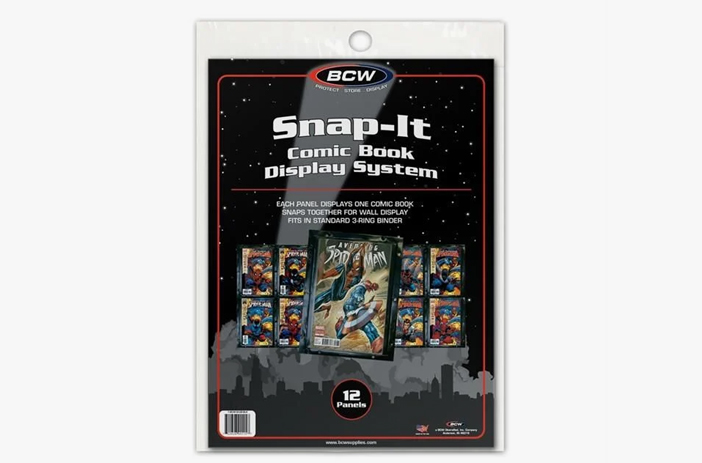
Personally, we don't recommend them for valuable comics. They aren't stiff, so they don't actually protect a comic from things like creases (like if your sheet falls off the wall and crumples on the ground) or curves (if you file them in a ring binder.)
Snap-Its are fine for lower-value comics that you don't worry too much about getting damaged, and they can make a handsome display system for certain kinds of comics. For anything truly valuable, though, it's just not quite enough.
Showcases
Showcases are sort of like slabs, with more padding and a mounting system to hang them on a wall, and no room for a label for authentication. You can see them here.
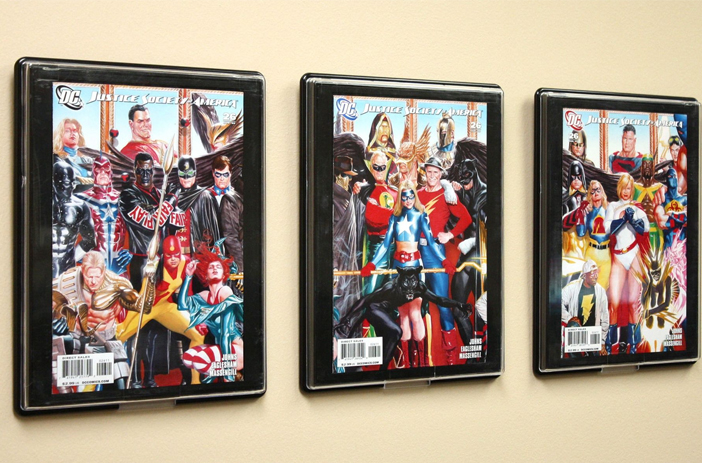
These are a perfectly fine system for mid-value comics. They're protective enough while still being meant primarily for display that I wouldn't feel bad about putting a valuable comic in them. However, they don't fit graded comics, so it's kind of an either-or situation. If your comics are valuable enough to warrant grading, you should probably do that instead.
Frames
Frames are exactly what they sound like. They're picture frames with glass fronts (or, in some cases, plastic fronts) that you insert a comic into using a sized mat and can then hang the comic on a wall. There's nothing wrong with these other than that they're not protective like slabs and, again, are designed more for display.
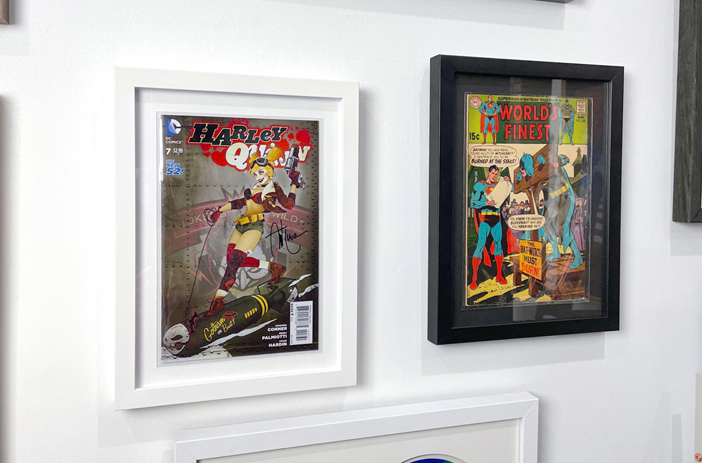
Image source: https://www.levelframes.com/blog/how-to-frame-your-comics-in-style
Frames can be a great option if you have lower-value comics you want to display. They can also be great if you have comics that, say, look good on the cover but are missing pages or are damaged on the back end, so they're effectively only valuable as art pieces.
Display Stands
Comic book display stands are usually meant to work with comics in rigid cases, like slabs. They come in a huge variety of different styles, and they're most often the way you'll see graded comics and high-value comics displayed on shelves, in showcases, and in stores.

If you want to display your comics rather than file them away in boxes, this is a great way to do it.
Should You Display or Store Comics?
Now here's a good question: do you display your valuable comics, or do you store them somewhere safe, like in a safe, a safety deposit box, or a storage system kept away from hazards?
This largely comes down to personal preference and the value of the comics.
Most collectors are, of course, comic fans. They got into collecting because they love the stories and characters, not just as a mindless financial investment. That means you're pretty likely to appreciate displayed comics. Of course, comics in slabs and on stands take up a decent amount of space, so it's usually a good idea to pick a handful of display pieces and keep the rest tucked away somewhere safe.
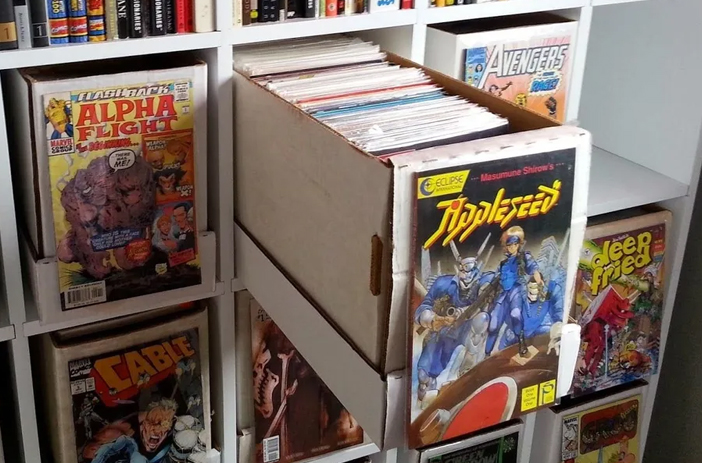
Image source: https://comicbooknews.org/news/f/comic-book-storage-guide
On the other hand, if you have something extremely valuable, you have a decision to make. Displaying your high-end purchases can be an immense prestige symbol, but it also exposes them to potential danger. Unless you're going to set up a museum-quality exhibit – which you certainly can! – you'll want to keep the valuable comic somewhere safe. How you choose to do that depends on your personal preferences.
And, if you're a vendor or flipper who buys mid-value and higher comics to hold and resell or as an investment, you probably want more of a filing system and less of a display system, with boxes, labels, dividers, and more. That's an entirely different concern, though.
What's the Best Option to Hold Valuable Comic Books?
There's no such thing as a single best option, unfortunately.
At the bare minimum, you want to bag and board your comics in acid-free bags with acid-absorbing boards. This gives anything and everything the baseline protection it needs to keep from degrading rapidly when exposed to the entropic forces of the universe.
From there, the more valuable the comic, the more protection you want it to have. Hard shells, slabs, and display cases can all be effective depending on what you want to do with the comics. Slabbing valuable comics is almost always a good idea, but it can also get expensive if you aren't selling the occasional comic to recoup some of your investment.
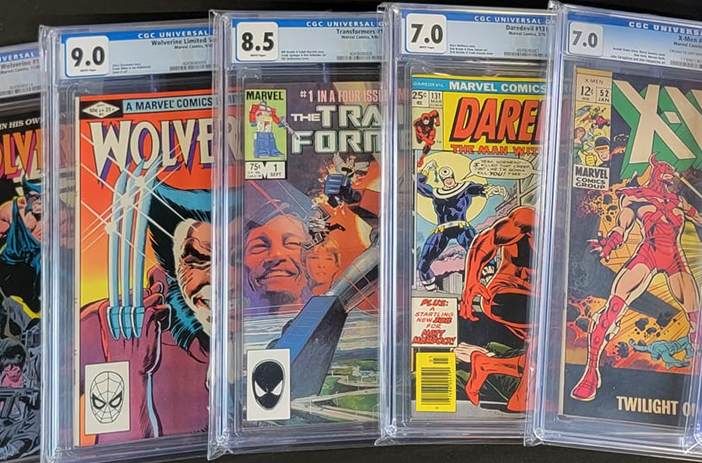
All of this is just our opinions, as well. You may have a different perspective and a different goal. In fact, why not tell us about how you hold and store your comics? Drop us a comment, leave a picture, and show off your system! It's always a good time seeing what other people are getting up to. And maybe, we've missed some upcoming storage systems that might be worth discussing too.
Oh, and if you're interested in buying or selling valuable comics, you've come to the right place. If you want to buy high-end comics, click here to view our new arrivals and page through our catalog to see what's currently for sale. If you're looking to sell or just don't know for sure what you have, you can click here and drop us a line. We're always happy to chat with you about your collection, offer our appraisal and opinion, and work with you if you choose to sell to us. Just let us know!

 Brent Moeshlin
Brent Moeshlin
![[Guide] Where is the Best Place to Get Your Comics Graded?](https://www.qualitycomix.com/images/size_f/news-000079.jpg)

